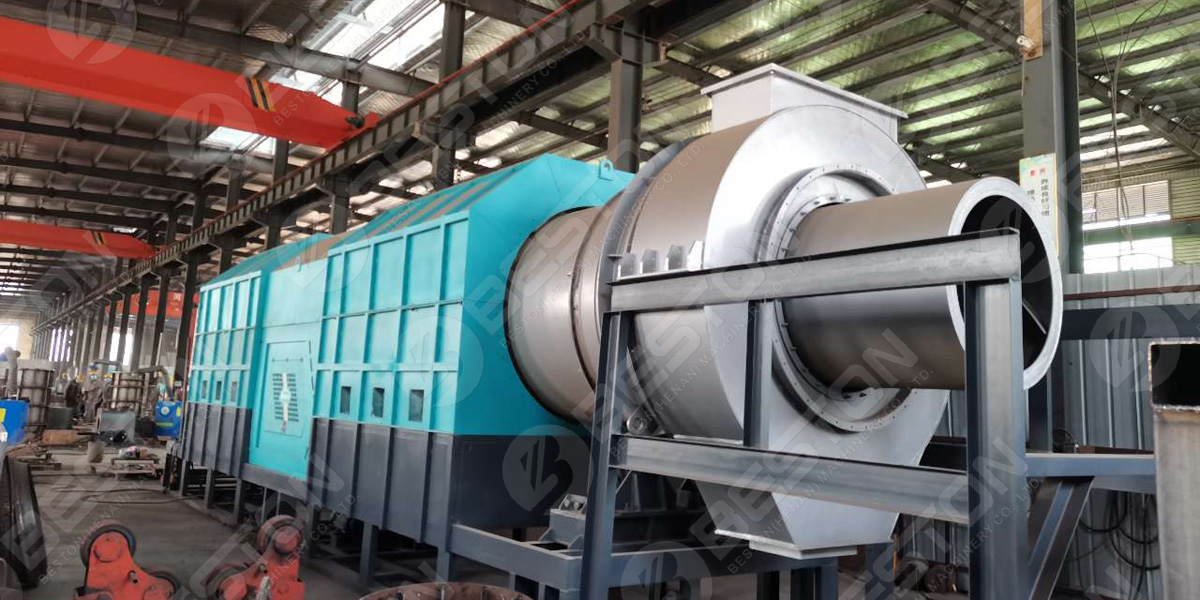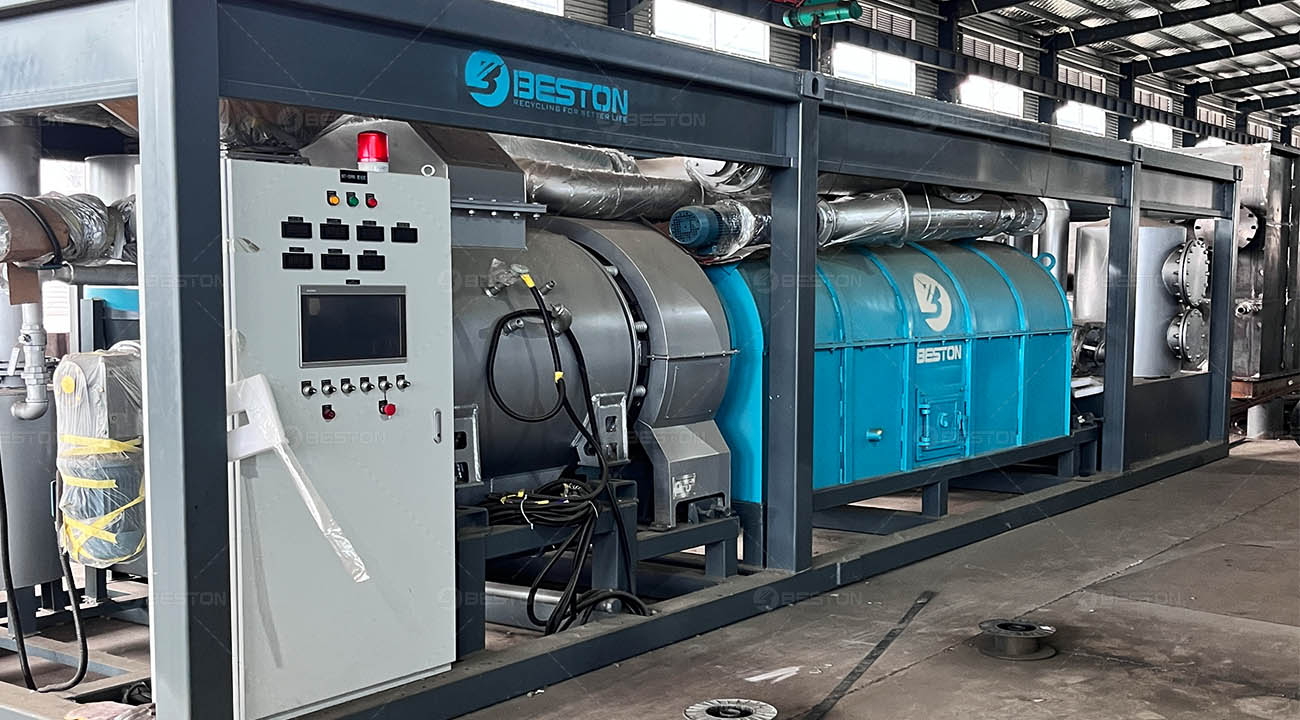The Role of Charcoal Making Machine in Carbon Neutralization
In a world increasingly defined by environmental challenges, the critical importance of carbon neutralization has come to the forefront of discussions on sustainability. The relentless emissions of carbon dioxide and other greenhouse gases have driven humanity to explore innovative solutions that can alleviate the devastating impact of these pollutants on our planet. Among these solutions, the role of the charcoal making machine stands out as a pioneering force, wielding technological prowess to contribute significantly to the realm of carbon neutralization.
The Carbon Neutralization Imperative
The repercussions of unbridled carbon emissions have been felt across the globe, manifesting in rising temperatures, melting glaciers, erratic weather patterns, and the endangerment of countless species. The urgent need to reverse these alarming trends has propelled the concept of carbon neutrality into the spotlight. Achieving carbon neutrality involves striking a delicate balance between emitting carbon and absorbing or offsetting an equivalent amount, effectively resulting in a net-zero carbon footprint. In this endeavor, technological innovations have proven to be invaluable assets in reshaping our approach to carbon emissions.

Carbon Offset Mechanisms and Technological Solutions
Carbon offset strategies have emerged as a vital means of counteracting carbon emissions. By investing in projects that mitigate or remove carbon from the atmosphere, individuals, companies, and even nations can neutralize their carbon footprint. However, technology has become the linchpin in accelerating our journey towards carbon neutrality. The integration of cleaner energy sources, such as solar and wind power, alongside the development of carbon capture and storage technologies, has significantly reshaped the trajectory of environmental sustainability.
Charcoal Making Machine: A Comprehensive Insight
Central to the discourse on carbon neutrality is the innovative charcoal making machine. This sophisticated apparatus is engineered to harness the potential of organic biomass materials, such as agricultural residues, wood chips, and sawdust, by converting them into charcoal through a process known as carbonization. At its core, the carbonization process involves subjecting biomass to elevated temperatures within an oxygen-limited environment, leading to the breakdown of complex organic compounds into simpler constituents, primarily carbon. This process not only contributes to carbon neutralization but also transforms waste materials into valuable resources.
Pyrolysis: A Transformative Process
Pyrolysis, a fundamental stage of charcoal production, is an intricate process that takes place within the confines of the biomass pyrolysis plant. The journey begins with the careful selection and preparation of the feedstock. The biomass is then subjected to controlled pyrolysis, which occurs in three distinct stages: drying, pyrolysis, and char formation. The temperature and oxygen levels are manipulated meticulously to influence the final products. Lower temperatures produce biochar, while higher temperatures yield more bio-oil and gases, such as methane and hydrogen. The resulting biochar is a stable, carbon-rich substance with remarkable potential for carbon sequestration and soil enrichment.

Environmental Resilience and Charcoal
The environmental benefits of charcoal production extend beyond carbon neutrality. Organic waste, if left to decompose in landfills, releases methane, a greenhouse gas exponentially more potent than carbon dioxide. By diverting these materials to charcoal production machine, we not only prevent methane emissions but also create a valuable carbon sink. The porous structure of charcoal serves as a long-term repository for carbon, effectively reducing atmospheric carbon concentrations and contributing to ecosystem resilience.
Charcoal in Industrial Applications
Beyond its intrinsic environmental advantages, charcoal finds versatile applications in various industries striving for carbon neutrality. In sectors such as metallurgy and chemicals, charcoal can replace fossil fuels as a reducing agent, significantly curbing emissions. Additionally, the integration of charcoal-based energy sources offers a promising pathway to reduce the carbon footprint of industrial processes. This dual role of charcoal—as a carbon offset solution and a cleaner energy source—makes it an invaluable asset in the race to combat climate change.
Economics, Carbon Credits, and Incentives
The allure of carbon neutrality extends beyond ecological benefits. As the global community places greater emphasis on sustainable practices, economic incentives emerge from the shadows. Carbon offset projects, including those centered around charcoal production, can earn carbon credits. These credits hold tangible economic value in the form of trading in emissions markets. This symbiotic relationship between environmental responsibility and financial gain serves as a catalyst for industries to adopt cleaner technologies and embrace sustainable practices. If you still have questions about related issues, please contact Beston Group. This is an experienced charcoal machine supplier.
Potential and Future Prospects
The trajectory of charcoal maker machine is poised for continued advancement. As technology evolves, these machines are likely to become more efficient, accessible, and capable of processing a wider range of feedstock. Moreover, the potential of charcoal to contribute to circular economies cannot be overlooked. The integration of biochar into agricultural practices can enhance soil fertility, water retention, and crop yields, fostering a regenerative cycle that nurtures both the environment and human sustenance.
Conclusion
In the grand tapestry of carbon neutralization, the charcoal making machine stands as an exemplary testament to human innovation and its potential to mitigate the challenges posed by carbon emissions. Through the transformation of organic waste into a valuable resource, the carbonization process not only offsets carbon emissions but also contributes to the restoration of our environment. As industries, governments, and individuals embrace the ethos of carbon neutrality, the charcoal making machine’s role will only grow more pivotal. It embodies the marriage of technological advancement, environmental stewardship, and economic viability—a trinity that will undoubtedly shape a greener and more sustainable future for generations to come.